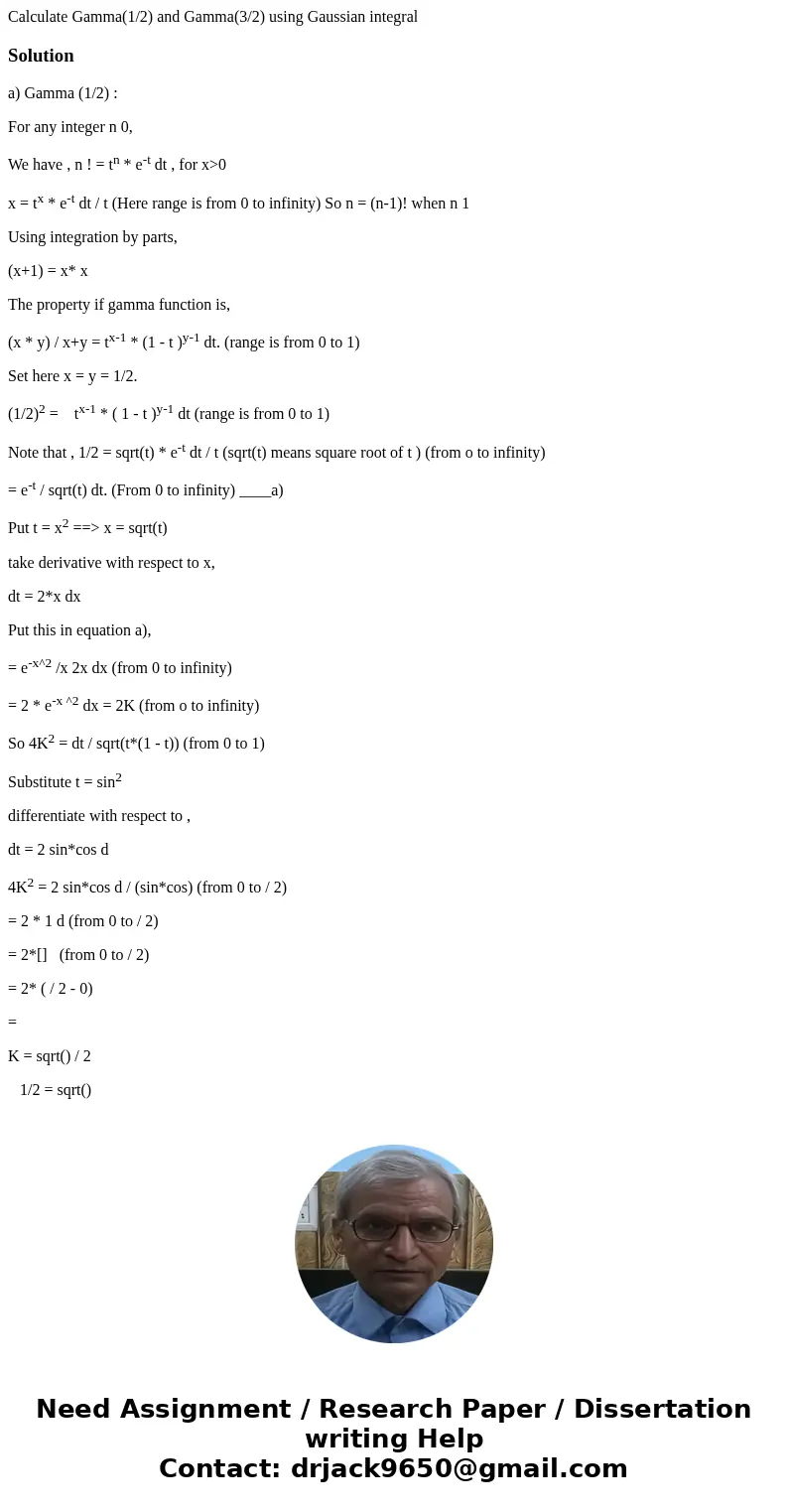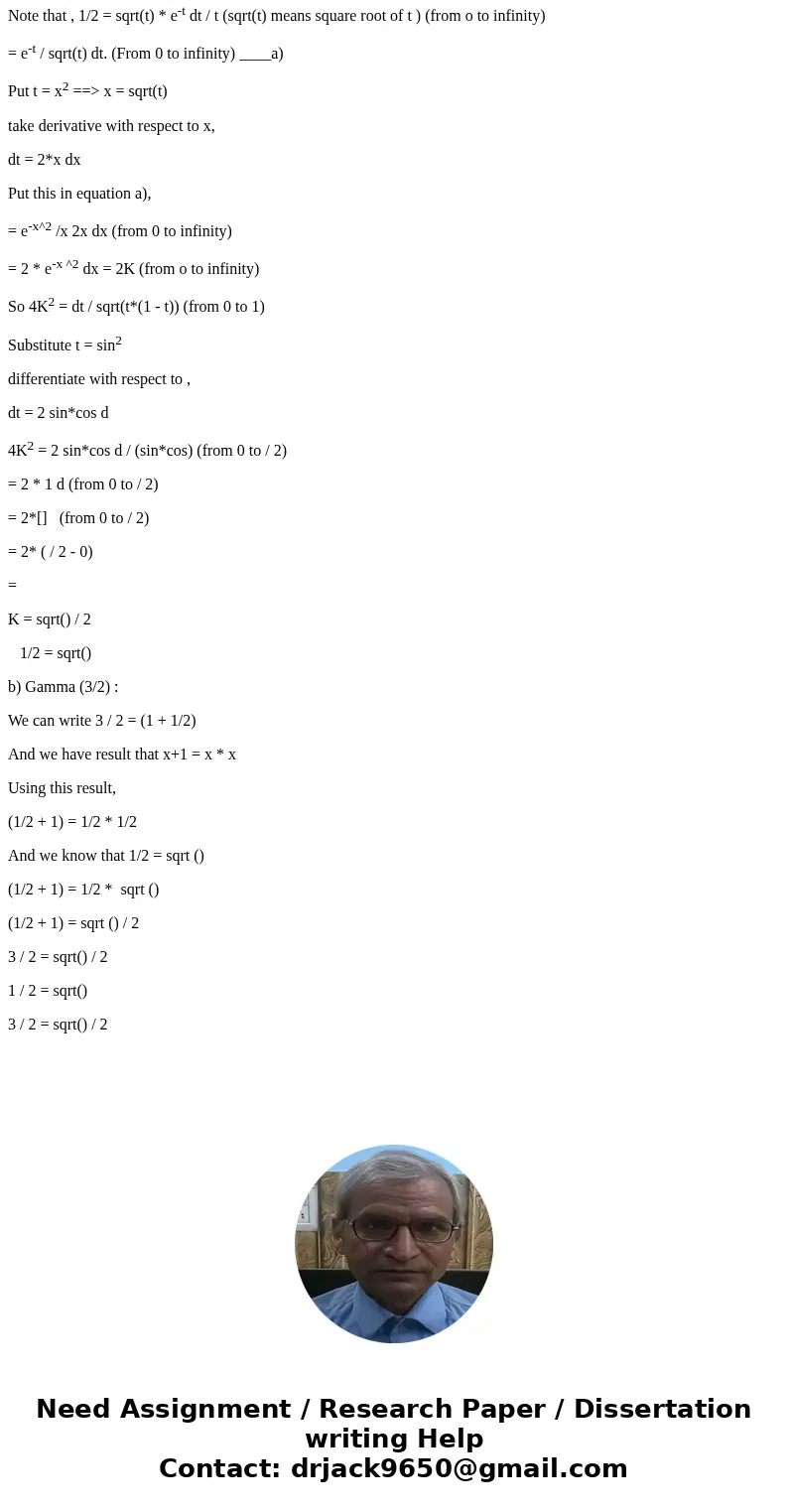Calculate Gamma12 and Gamma32 using Gaussian integralSolutio
Calculate Gamma(1/2) and Gamma(3/2) using Gaussian integral
Solution
a) Gamma (1/2) :
For any integer n 0,
We have , n ! = tn * e-t dt , for x>0
x = tx * e-t dt / t (Here range is from 0 to infinity) So n = (n-1)! when n 1
Using integration by parts,
(x+1) = x* x
The property if gamma function is,
(x * y) / x+y = tx-1 * (1 - t )y-1 dt. (range is from 0 to 1)
Set here x = y = 1/2.
(1/2)2 = tx-1 * ( 1 - t )y-1 dt (range is from 0 to 1)
Note that , 1/2 = sqrt(t) * e-t dt / t (sqrt(t) means square root of t ) (from o to infinity)
= e-t / sqrt(t) dt. (From 0 to infinity) ____a)
Put t = x2 ==> x = sqrt(t)
take derivative with respect to x,
dt = 2*x dx
Put this in equation a),
= e-x^2 /x 2x dx (from 0 to infinity)
= 2 * e-x ^2 dx = 2K (from o to infinity)
So 4K2 = dt / sqrt(t*(1 - t)) (from 0 to 1)
Substitute t = sin2
differentiate with respect to ,
dt = 2 sin*cos d
4K2 = 2 sin*cos d / (sin*cos) (from 0 to / 2)
= 2 * 1 d (from 0 to / 2)
= 2*[] (from 0 to / 2)
= 2* ( / 2 - 0)
=
K = sqrt() / 2
1/2 = sqrt()
b) Gamma (3/2) :
We can write 3 / 2 = (1 + 1/2)
And we have result that x+1 = x * x
Using this result,
(1/2 + 1) = 1/2 * 1/2
And we know that 1/2 = sqrt ()
(1/2 + 1) = 1/2 * sqrt ()
(1/2 + 1) = sqrt () / 2
3 / 2 = sqrt() / 2
1 / 2 = sqrt()
3 / 2 = sqrt() / 2


 Homework Sourse
Homework Sourse